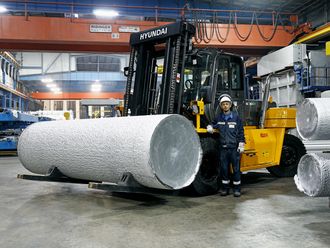US oil firm Devon Energy Corp is upbeat on prospects for Block 10 offshore Angola and hopes to start drilling by the end of the first half, the head of its Angola operations said yesterday.
The company, which became the largest independent oil and gas producer in the United States following Devon's acquisition of Ocean Energy last April, is still putting the final touches to the participation agreement with its partners.
"We pretty much have the partners lined up and we're finalising details of the contractual documents," Arlindo Alves, director general of Ocean Angola Corporation, told Reuters in an interview.
"As soon as these negotiations are completed they will be sent for approval to the Council of Ministers. Once this is granted, we're ready to secure a rig and start drilling hopefully by the end of this half or the beginning of next," he said.
A 3D seismic survey conducted a year ago had revealed one very good potential drilling spot, Ngueve-1, which Ocean was busy discussing with its partners, Alves said.
Ocean is the operator of Block 10 with a 35 per cent interest while state-owned oil company Sonangol has a 20 per cent stake. Alves declined to name the company or companies which will eventually have the remaining 45 per cent while negotiations were still under way.
The firm also operates Block 24 with a 65 per cent interest, and has plans to drill a fourth well in the second half of this year, once Block 10 drilling was completed.
"Block 10 and Block 24 are adjacent to each other in the Benguela-Kwanza basin. We feel that the information we acquire from drilling in Block 10 could help us choose a better location in Block 24," Alves said.
So far, only the Semba well has shown signs of commercial viability.
Ocean has invested more than $100 million in Angola since it began work in the southwest African country with a block in the northern enclave province of Cabinda in 1998.
At that time the war between government forces and separatists prevented operations and the block was placed in force majeure, a situation which remains until now.
The company intends to run a risk assessment soon with a view to starting more intense operations by the beginning of 2005, Alves said.
Cabinda produces around half of Angola's oil, which is estimated to be around one million barrels per day (bpd). Angolan production is expected to double to more than two million bpd by 2008 as a number of new developments come onstream.
Devon Energy upbeat on Angola drilling
US oil firm Devon Energy Corp is upbeat on prospects for Block 10 offshore Angola and hopes to start drilling by the end of the first half, the head of its Angola operations said yesterday.










